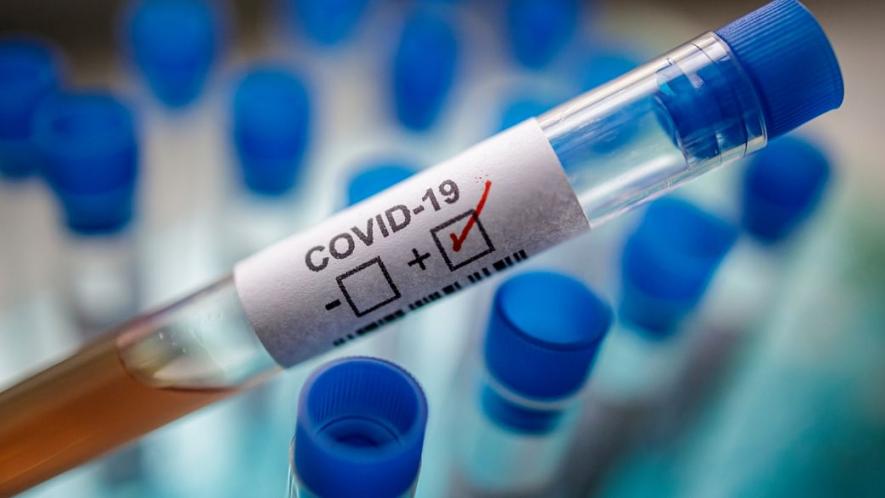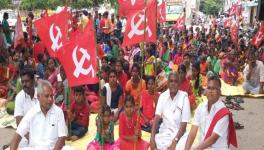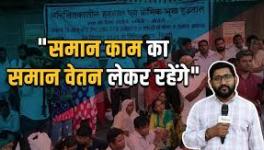Failing to Flatten the Curve: How Tamil Nadu is Losing its Way in the COVID-19 Fight

The Sathankulam custodial deaths, which happened as a result of extreme lockdown policing, are the tip of the iceberg of a COVID-19 crisis that is beginning to engulf Tamil Nadu. New infections are steadily on the rise, as is a death toll, the numbers of which have clearly been underplayed.
For three months, the state administration pursued a ham-handed and craven implementation of an already-flawed COVID-19 policy handed down by the Centre. From the obsession with the "Delhi single-source event" – as it was politely called – while uncontrolled Chennai markets spread the novel coronavirus widely, to the continued ostrich-like denial of community transmission, the lack of independent initiative is all too apparent.
For three months now, the TN government has been far more eager in handing out herbal concoctions than conducting large-scale fever monitoring in the capital city of Chennai, also a hotspot. While one minister claims that a Siddha medicine protocol is emerging as a cure, the Chief Minister himself appears to have thrown up his hands, exclaiming that "only God knew when the pandemic would end". It was a rare confessional moment in three months of self-congratulatory messages doled out to the people of the state.
In following the Centre's lead – in a fashion which is a veritable caricature of an already-deficient outlook – the Edappadi Palaniswami-led administration has, from the beginning, dealt with the pandemic as a law and order plus disaster management problem, sidelining the public health focus consistently.
The police and the bureaucracy have been the arms of the administration whose voices have been the loudest, while the public health and health sectors have been muted in their outreach to the public. As scattered indications in the media suggest, district collectors and police authorities have similarly held sway in the districts, with their own particular interpretation of the lockdown protocols, of which the custodial deaths have become the most potent symbol. Indeed, in media releases, the enthusiasm in reporting the number of vehicles seized and fines collected appears to overshadow the reporting of the latest public health statistics.
Predictably, every phase of lockdown has been followed by the continued spread of the infection, in the absence of the disease control effort that must accompany it. Or, to put it more accurately, disease control efforts that are advertised, but have clearly failed in the implementation on the ground.
It is in keeping with this failure that a technical justification of each phase of the lockdown has been progressively less based on evidence, with media releases referring only to "consultations with experts". The stagnation in testing for over a month, midway during the pandemic, on a low base to begin with, and the obsessive claim that TN has the unique characteristic of having very low mortality rates, are two indicators that expert advice is being ignored, overridden by political posturing, or that the expertise summoned to the table is sorely deficient.
A near total lack of accountability characterises the administration, with the Chief Secretary and the Chennai Corporation Commissioner continuing to hold on to their posts. Both are accountable for presiding over the state’s disastrous inability to put the brakes on the rising disease curve, in the state and its capital. A briefly sidelined Minister for Health, in the doghouse for his absurd self-promotion in the media, came back into the limelight after a brief absence. The bevy of ministers appointed to help manage Chennai have responded with silence, while the infection sweeps through the city. Another week or so will tell us if changing the Health Secretary was a cosmetic move, or was well thought out.
What should incite outrage is that this need not have been so, even as in retrospect it becomes evident that the portents of the current crisis have long been with us. TN has not been a laggard in public health, in the control of infant and maternal mortality, and in the presence of a reasonable health infrastructure.
But, these gains have been difficult to build upon in the absence of the critical innovation-on-the-fly needed in this crisis – which neighbouring Kerala and to some extent, Karnataka, have managed to summon. This failure has been aggravated by the general decline in public health infrastructure, as true in Tamil Nadu as in most parts of the country.
Despite an enviable health infrastructure in the private sector, the dissipation of a sense of public service, once its hallmark, has ensured that shameful squabbling over hospitalisation charges has dominated the headlines, rather than a spirited response to the emergency. It is clear that there has been only a halting response to the need of building up infrastructure on an urgent basis. The non-allocation of bed space with the necessary additional equipment for both COVID and non-COVID patients in the public and private sector has been misrepresented as a shortage in availability – public criticism of this is being effectively throttled with some widely advertised FIRs under the epidemic and disaster management acts.
In contrast to its neighbours, the government of Tamil Nadu has failed to invest in public action, in summoning volunteers and civil society initiatives, instead insisting on channelling all its efforts through the bureaucracy. The years of reducing local community initiatives to competitive distribution of handouts through political party fronts have taken their toll. Nor has behaviour changed during the crisis – with the ruling party leading the way, it is inevitable that others would follow suit. Local self-government appears to have been entirely sidelined; a valuable resource missing in action in mobilising society against the pandemic. Despite the top-down bureaucratic reading of disaster management legislation by the Centre, the state could still have done far more to vitalise local self-government in this crisis.
Today, the world outside TN is wondering how the state and its capital will tide over this phase of crisis. It is small comfort that cities like Mumbai and Delhi appear to be on par with Chennai, given the depth of their crises.
However, managing the COVID-19 emergency is too important to be responded to by throwing up hands in the air in despair. A return to the basics, a focus on health rather than policing, transparency in technical and medical advice and inputs, setting the stage for cooperation with all sections of the polity, summoning up community initiatives, revitalising local self-government and intensifying efforts to educate the populace and promote their involvement while drawing them in as partners and not subjects, would go some way in saving Tamil Nadu from the current crisis.
The writer is Senior Fellow, Climate Change, M.S. Swaminathan Research Foundation, Chennai. The views are personal.
Get the latest reports & analysis with people's perspective on Protests, movements & deep analytical videos, discussions of the current affairs in your Telegram app. Subscribe to NewsClick's Telegram channel & get Real-Time updates on stories, as they get published on our website.
























